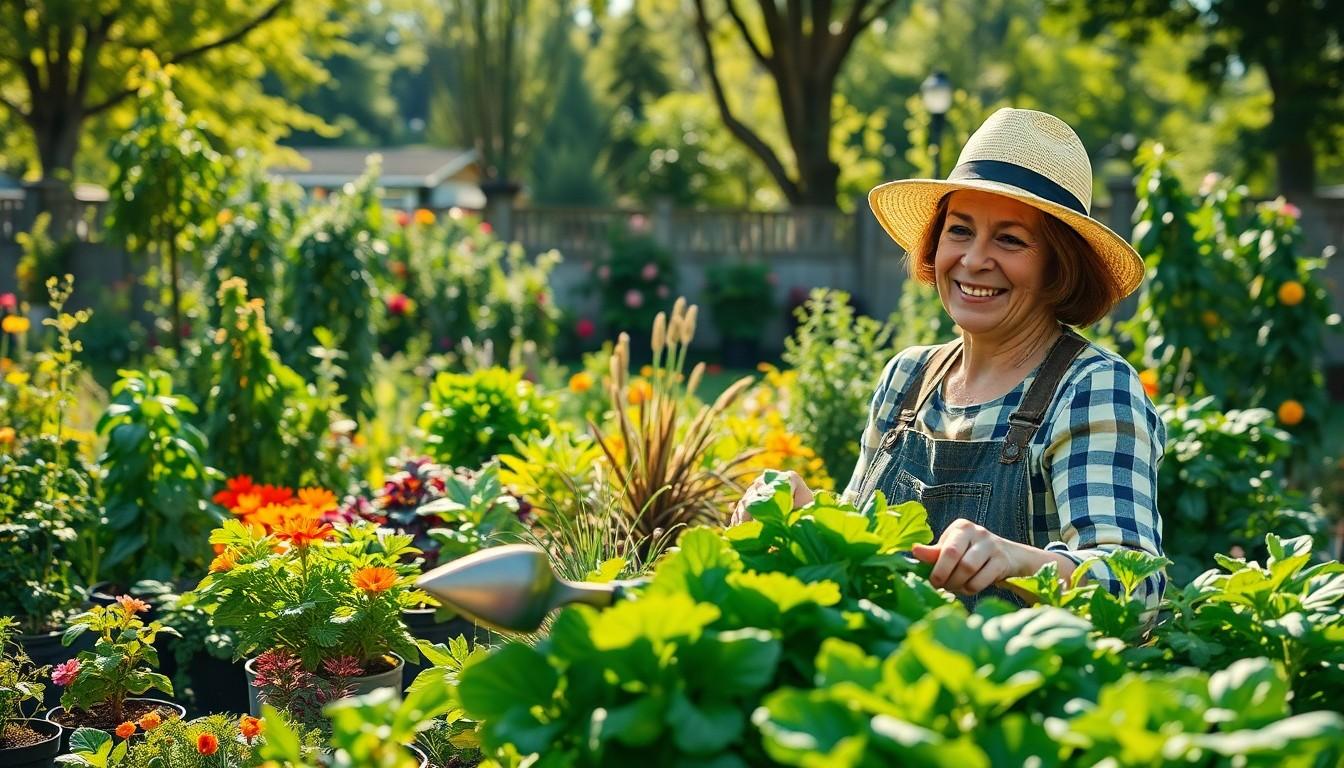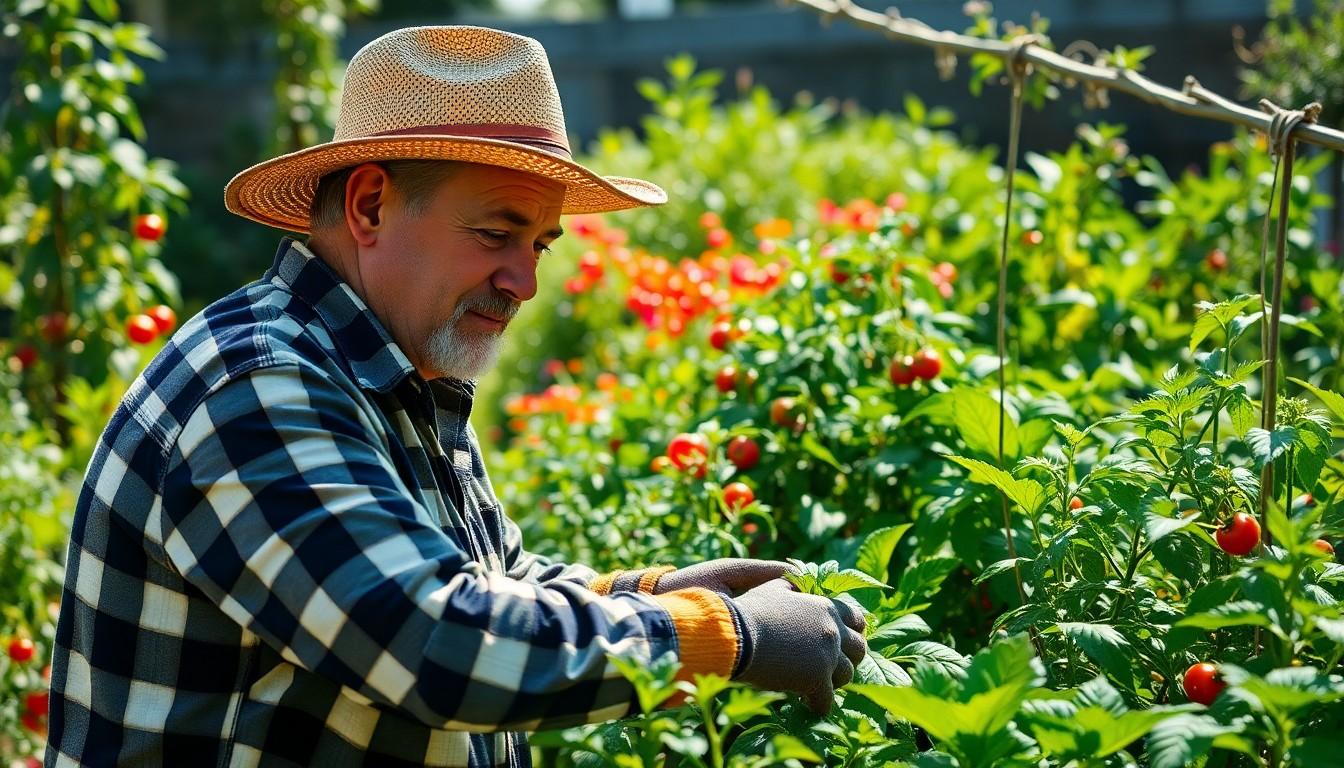Phone:
(701)814-6992
Physical address:
6296 Donnelly Plaza
Ratkeville, Bahamas.

Imagine stepping into a world where your garden thrives without synthetic fertilizers or pesticides—where every plant is a testament to nature’s brilliance. The Encyclopedia of Organic Gardening is your ultimate guide to cultivating this lush paradise. With a treasure trove of tips, tricks, and techniques, it transforms even the most black-thumbed novice into a green-thumbed guru.
The Encyclopedia of Organic Gardening serves as an essential resource for anyone interested in sustainable gardening practices. This comprehensive guide covers various topics, from soil health to pest management, empowering gardeners to make informed decisions. Organic gardening methods champion the use of natural fertilizers and promote biodiversity.
Detailed sections on vegetables, fruits, and herbs offer planting schedules, growth conditions, and care instructions. Each entry features illustrated visuals, making information accessible and easy to understand for all gardening levels. Readers find practical techniques for composting, crop rotation, and companion planting, which enhance garden productivity.
Organic pest control methods receive significant emphasis in the encyclopedia. Integrated Pest Management strategies offer solutions to common garden problems, minimizing the need for synthetic chemicals. With this guidance, gardeners learn to recognize beneficial insects, their roles in maintaining natural ecosystems, and how to support them.
Climate-specific gardening advice helps readers adapt their practices according to local conditions. Regional variations outlined in the encyclopedia address diverse climates and soil types, ensuring relevance for gardeners everywhere. Techniques applicable across different environments maximize success rates.
Sustainable practices are underlined throughout the content. Techniques like mulching and cover cropping contribute to soil fertility, water conservation, and carbon sequestration. By employing these strategies, gardeners actively promote environmental health while nurturing their plants.
The Encyclopedia of Organic Gardening aligns with the growing movement towards eco-conscious living, reflecting a significant shift in how society approaches food production. Each chapter inspires a deeper understanding of the interconnectedness of gardening, nature, and sustainability, making it a valuable addition to any gardener’s library.

This section delves into the essential features of “The Encyclopedia of Organic Gardening.” It stands out as a vital tool for gardeners at every skill level.
The encyclopedia encompasses a wide range of subjects, ensuring diverse gardening needs are met. It includes in-depth discussions on soil health, organic fertilizers, and pest management strategies. Topics on plant selection cover vegetables, fruits, and herbs, presenting tailored care instructions for each. Seasonal planting schedules assist gardeners in optimizing their growth cycles. Additional sections on composting, crop rotation, and sustainable practices like mulching support eco-friendly gardening. This breadth of information empowers readers to cultivate thriving gardens in a sustainable manner.
The knowledge within “The Encyclopedia of Organic Gardening” stems from experts with extensive backgrounds in horticulture and ecology. Contributors include certified organic farmers, seasoned gardeners, and university professors specializing in sustainable agriculture. Their combined experience enriches the reader’s understanding of organic practices. Qualifications such as advanced degrees in horticultural science and years of hands-on experience boost the credibility of the shared information. Readers benefit from these insights, gaining valuable tools and techniques for successful organic gardening.
The Encyclopedia of Organic Gardening offers numerous advantages for gardeners at all levels. This comprehensive resource enhances gardening skills and knowledge, ensuring success in sustainable practices.
New gardeners find valuable insights within its pages. Practical advice on basic techniques simplifies the learning curve. Step-by-step guides address essential topics such as soil preparation, planting, and watering techniques. Illustrated visuals clarify complex concepts, making information easily digestible. This encourages confident exploration into organic gardening. Beginners can discover efficient methods for composting and understanding plant needs. Accessible language helps remove intimidation associated with starting a garden. Each chapter equips novice gardeners with the tools required for growing thriving plants organically.
Experienced gardeners appreciate the depth of information provided. Detailed sections on advanced techniques and innovative practices elevate their gardening endeavors. Comprehensive coverage of topics like crop rotation and pest management strengthens garden resilience. Expert contributions from seasoned professionals further enhance credibility. Insights into regional gardening variations ensure relevance regardless of location. The encyclopedia encourages exploration of new methods, promoting continuous learning. Experienced gardeners gain a broader understanding of biodiversity and its impact on overall health. This resource acts as a reference guide, inspiring creativity and encouraging refinement of existing skills.
“The Encyclopedia of Organic Gardening” stands out among gardening resources due to its comprehensive focus on organic practices. It emphasizes sustainable methods, setting it apart from conventional gardening books that often promote synthetic chemicals.
Specific sections dedicated to organic fertilizers and pest management offer detailed insights not typically found in general gardening guides. Many other resources may gloss over these topics, skipping crucial strategies for maintaining soil health without chemicals.
Illustrated visuals enhance understanding and accessibility. While some gardening books rely solely on text, the visuals in the encyclopedia allow readers to visualize techniques, encouraging confidence in implementing what they learn.
Practical techniques such as composting, mulching, and cover cropping elevate the encyclopedia’s relevance. Compared to typical resources that provide only basic care instructions, this guide expands on ways to enrich soil fertility and boost plant health naturally.
The inclusion of climate-specific advice further distinguishes this encyclopedia. Other resources may overlook regional differences, but the encyclopedia ensures that gardeners receive tailored guidance, enhancing the effectiveness of their efforts.
Expert contributors bring authority to the information presented, providing insights grounded in research and practical experience. Many resources lack this level of expertise, relying on anecdotal evidence instead of scientific backing.
Overall, “The Encyclopedia of Organic Gardening” serves not only as a practical guide but also as an educational tool. Its unique approach reinforces the importance of organic gardening by fostering a deeper understanding of sustainable practices among gardeners.
“The Encyclopedia of Organic Gardening” stands as a vital resource for anyone eager to embrace sustainable gardening. Its extensive coverage of organic practices equips gardeners with the knowledge to cultivate healthy plants while nurturing the environment. With practical advice tailored for all skill levels it fosters confidence and creativity in the garden.
Gardeners can explore diverse topics from soil health to pest management gaining insights that promote biodiversity and environmental stewardship. The expertise of contributors enriches the reader’s understanding ensuring that every gardener can make informed decisions. This encyclopedia not only serves as a guide but also inspires a deeper connection to nature and the principles of sustainability. It’s an essential addition to any gardener’s library promoting eco-conscious living and a thriving garden.